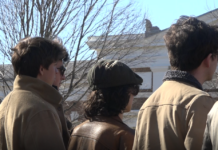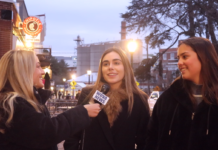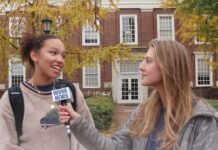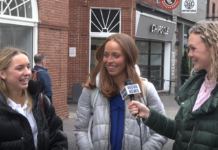This past Thursday, a new building located in the Facilities Management complex on McCormick Road was dedicated to Peyton Skipwith, a successful stonemason and former slave. Skipwith Hall was established to honor the man who was a slave at the plantation of John Hartwell Cocke, a member of the University of Virginia’s Board of Visitors.
Although Skipwith worked as a stonemason, he did much more than that. Facilities Management historian Garth Anderson, who found the connection between Skipwith and Cocke, explained Skipwith’s significance.
“Skipwith did more than cut stone…he was a historic figure. You see it through [Skipwith’s] letters – 15 years of struggles and successes. The distance allowed for stories to be told.”
Many of Skipwith’s historical contributions came from those letters, which were written after his emancipation. Cocke did not believe in slavery and freed Skipwith and his family to allow them to start a new life in Liberia, at an American colony for former slaves.
Although his wife and one of his daughters died shortly after arriving in Africa, Skipwith continued to write document his life through the letters he wrote. These letters were held at UVA’s Albert and Shirley Small Special Collections Library until they were resurrected by historian Randall M. Miller. Miller said that the importance of Skipwith’s letters should not go unnoticed.
“You’re not just rewriting history, you’re making it right,” Miller said. “This new narrative reveals the work of the enslaved laborers and presents them as ‘real people’.”
Skipwith’s letters depict a competent and respectful man starting a new life in Africa. In a letter to Cocke he expressed his situation in an extremely courteous fashion.
“If not will return back to America give my respects to your family also to the people, let my Mother know that you have received a letter from me I dont (sic) want you to say any thing to [her] about my being blind but let her know that I will return. Dianah send her love to Miss Sally and all of the family.”
Approximately 25 of Skipwith’s descendants came to the ceremony to recognize the life of Skipwith and the significance his letters had in the history of this University.
















